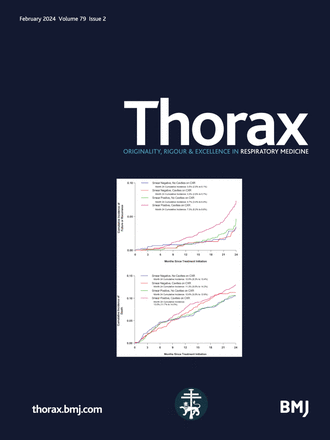肺研究大挑战:转化呼吸研究
IF 7.7
1区 医学
Q1 RESPIRATORY SYSTEM
引用次数: 0
摘要
英国的呼吸系统研究资金不足,价值被低估,协调不佳。肺部健康状况不佳每年给经济造成约1900亿英镑的损失1,英国每5分钟就有一人死于呼吸系统疾病2,呼吸系统疾病对经济和公共卫生的影响不能也不应该再被忽视。尽管作为一个研究界尽了最大努力,在了解和治疗呼吸系统疾病方面取得了急需的进展,但进展受到资金不足的阻碍。呼吸系统研究只获得了2.5%的公共资金,这个数字显然与疾病负担不成比例,因为肺部疾病是英国第三大死亡原因,在他们的一生中会影响1200万人与分配给其他主要死亡和伤害原因(如癌症(16.8%)和精神健康(6.1%))的公共资金比例相比,这种差异是惊人的英国并不是唯一一个不重视呼吸系统健康的国家。全球投资不足直接影响研究产出,该领域的出版物在过去50年中呈比例下降此外,越来越少的人从事呼吸医学的临床和学术工作那些有能力的国家面临着特定条件的孤岛和有限的数据共享能力,限制了通过合作取得的进展。这些障碍阻碍了研究的进展,这个问题早已被呼吸道研究界所承认。近20年前,英国呼吸系统研究战略合作组织提出了一套研究重点,作为集中投资和建设研究能力的机制然而,到2024年,肺研究与创新小组(LRIG,同样由学者、患者和专业组织和研究机构组成)…本文章由计算机程序翻译,如有差异,请以英文原文为准。
Lung Research Grand Challenges: transforming respiratory research
Respiratory research in the UK is underfunded, undervalued and suboptimally coordinated. With poor lung health costing the economy ∼£190 billion per year1 and someone in the UK dying of a respiratory condition every 5 min,2 the economic and public health impact of respiratory conditions can and should no longer be ignored. Despite best efforts as a research community to deliver much needed advancements in the understanding and treatment of respiratory conditions, progress is hindered by inadequate funding. Respiratory research receives just 2.5% of public funding,3 a figure clearly disproportionate to the burden of disease as lung conditions are the UK’s third leading cause of death and will affect 12 million people during their lifetime.2 This discrepancy is striking when compared with the proportions of public funding allocated to other leading causes of death and harm, such as cancer (16.8%) and mental health (6.1%).3 The UK is not alone in its failure to prioritise respiratory health. Global underinvestment directly impacts research output, with publications in the field proportionally declining over the last 50 years.4 Additionally, fewer people are pursuing clinical and academic careers in respiratory medicine.5 Those who do are confronted with condition-specific siloes6 and limited data-sharing capabilities,7 limiting progress through collaboration. These barriers are stalling the research pipeline, an issue that has long been acknowledged by the respiratory research community. Nearly 20 years ago, the UK Respiratory Research Strategy Collaborative proposed a set of research priorities as a mechanism to focus investment and build research capacity.8 Yet, in 2024, the Lung Research and Innovation Group (LRIG; similarly comprising academics, patient and professional organisations and research …
求助全文
通过发布文献求助,成功后即可免费获取论文全文。
去求助
来源期刊

Thorax
医学-呼吸系统
CiteScore
16.10
自引率
2.00%
发文量
197
审稿时长
1 months
期刊介绍:
Thorax stands as one of the premier respiratory medicine journals globally, featuring clinical and experimental research articles spanning respiratory medicine, pediatrics, immunology, pharmacology, pathology, and surgery. The journal's mission is to publish noteworthy advancements in scientific understanding that are poised to influence clinical practice significantly. This encompasses articles delving into basic and translational mechanisms applicable to clinical material, covering areas such as cell and molecular biology, genetics, epidemiology, and immunology.
 求助内容:
求助内容: 应助结果提醒方式:
应助结果提醒方式:


